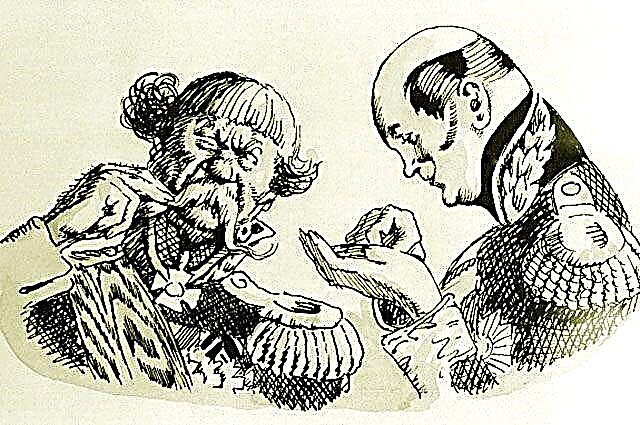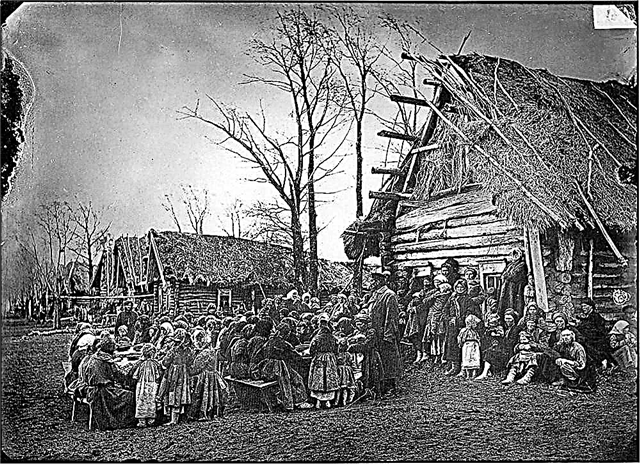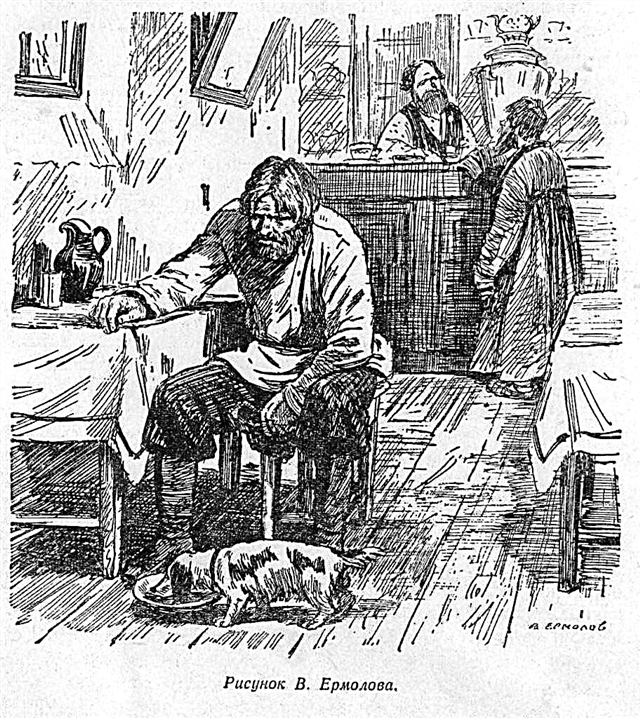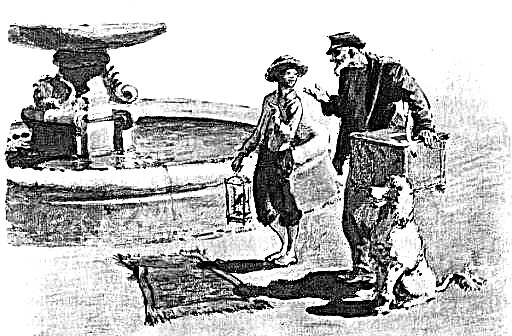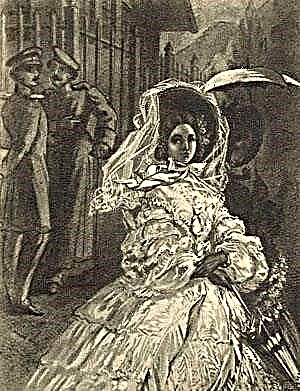Oscar Wilde is a great writer who showed the world one single novel. Wilde is a representative of aesthetics who has vividly introduced this trend to the masses. Oscar is a paradoxical man in Europe, dividing the whole of London into two parts: some hated him, others praised him. So what is so special about this writer? Why do we still, after years, continue to discuss this extravagant young man?
Birth and childhood
The gentleman of aesthetics was born in Dublin. It happened in October 1854. Wilde was the second child in the family.
My father studied folklore and archeology, the poet’s mother is an Irish nationalist, wrote poetry for the Young Irish movement under the pseudonym Speranza (translated from Italian, hope).
Youth: education and career start
Initially studying at home, the nine-year-old Oscar learned French and German, and in 1864 entered the Royal School of Portor. He studied there for seven years. Even then, his first talent was revealed to the young poet - quick reading. There, Wilde was able to try out the divine taste of fame for his ability to humorously represent school incidents. By the end of his studies, Wilde receives a Royal Scholarship to study at Dublin Trinity College, where he enters in 1871, graduating from high school with honors.
Where did the writer go on to study? Excellent knowledge of ancient languages helps Wilde in his specialization in the culture and history of antiquity. Here Oscar receives the foundation for the subsequent disclosure of himself as an esthete writer. He is the first to listen to lectures on aesthetics. A close communication with the professor of ancient history, Mahaffy (curator Wilde) lays in him the main features of his future personality. Having successfully completed his studies, Oscar Wilde is honored to study at Oxford.
Here he first meets with art theorist Ruskin and his student Walter Horeisho Peyter and falls under their influence. Both intellectuals presented beauty as something divine, majestic. But if Ruskin represented her only in partnership with goodness, then Peyter denied the moral principle in beauty, presenting her as something independent of this. The views of these people made a lasting impression on the young writer, who will accompany him throughout his life. There, Oscar Wilde is changing beyond recognition. He gets rid of the Irish accent and develops his own, author's style of dress. The character is changing. Aesthetic statements, a specific manner of speech, self-irony, contempt for generally accepted morality become invariable sides of his personality. He also builds around himself, as he planned, the reputation of a man of brilliant, extravagant. Someone liked it, and many were not averse to spending time in the company of an interesting young man. Others, among whom were especially athletes, had a special dislike for him.
While still at the university, Wilde writes his first published work - the poem Ravenna. The writer was inspired by his visits to Greece and Italy to create this work. Although the master of aesthetics that he will become in the future is not yet visible in this act, he receives the highest award for the poem - the Newdigate Prize. After completing his studies, Oscar moves to London.
Creation
At the beginning of his career, Wilde realizes himself as an esthetic poet. He is releasing the first collection of "Poems", which is penetrated from beginning to end with the spirit of the "Brotherhood of the Pre-Raphaelites." In his creation, the writer conveys the feelings that engulfed him at one time or another. A huge number of topics, from political to spiritual, pass under his pen, through his aesthetic gaze, and appear before the readers in all its glory.
Oscar Wilde spends the following year traveling around the USA. He lectures on art, conquers the audience and returns to London.
But for a long time the writer does not stay here. More ... Paris, meeting with famous French writers. London again and complete immersion in creativity. He composes and publishes his most famous short stories - The Canterville Ghost, The Portrait of Mr. W.H., The Sphinx Without a Mystery, and others that are read today. He also publishes collections of children's fairy tales. The writer is inspired by his own children to create famous works from these collections. During this period, Oscar makes a living from journalism. Esthete articles are published in the best publications, and he himself is editing the publication “Women's World”. Wilde's excellent work as a journalist is emphasized by Bernard Shaw.
Next year is an important point in the biography of the writer. Oscar writes and publishes his famous masterpiece - "Portrait of Dorian Gray" (there are interesting details of its creationread). The novel brings him dizzying success and divides the readers into two camps. Some reproach the author for immorality, the destruction of moral values, while others, on the contrary, idolize the writer. Then Oscar supplements his creation with chapters. The main change is the introduction, called the manifesto of aestheticism - it contains the writer's thoughts, his views on his own philosophy.
After the sensational novel, a collection of ideas is published. In it, Oscar sets out his vision of “Art” as something divine, majestic, hereinafter - “The Soul of Man under Socialism” and other equally important works.
Personal life
The first recorded relationship with Oscar Wilde began at twenty-nine years. At this age, he falls in love and marries twenty-five-year-old Constance Lloyd. A year later, the first-born Cyril appears in the family, and a year later - Vivian. But happiness is short-lived. Soon, the young father finds a new object for sighing - Alfred Douglas. Douglas made every possible use of Wilde: he asked for money for some of his needs, just bathed in the glory of the famous esthete writer. The consequences are not long in coming. Oscar stops seeing his family, giving all his time to a young lover. From now on, their marriage to Lady Constance is only official. Wilde's wife is actually raising children alone.
Soon what is to be expected is happening. The father of the young lord - John Sholto Douglas - does not want to put up with the fact that his heir is gay. The Marquis of Queensberry threatens Wilde that he will publicize the writer's hobby. He requires Oscar to break all ties with his son. But lovers do not want to fulfill the requirements of father Douglas, continuing their relationship. The situation resolved in February 95. The Marquis sends a note addressed to Oscar Wilde, in which John Sholto accuses him of sadomiya. The answer is not long in coming. Oscar Wilde, who does not hear the voice of reason, nor the voice of friends, sues his beloved father.
Interesting Facts
- The writer was convicted of writing his book. He was brought to trial for violating the norms of morality and morality, as well as promoting cynicism. In Puritan England, this was a very significant charge.
- Oscar Wilde even helped develop the British prisons, as he wrote several articles about keeping prisoners. His suggestions were made during the adoption of the Prison Act.
- According to BBC viewers, Wilde is a very sharp-tongued person who has ever lived in England.
- The author wrote the novel "Portrait of Dorian Gray" on the dispute in just two weeks.
- Wilde was alien to the pursuit of profit. Once an American publisher offered the eminent creator $ 5,000 for a novel of 100,000 words. This is a fabulous sum for those times! But the writer responded to this generous offer with only a careless joke: "I hardly know 100,000 words."
- The author’s mother really wanted a girl and sometimes dressed her son in women's dresses, growing him a long luxurious head of hair. Due to this bias in gender education, the boy, according to some researchers, became homosexual.
Philosophy of life
Our hero is a man of ambiguous, paradoxical. Some spoke positively of him, praised and imitated him, copying his style of clothing and behavior, while others criticized and criticize the writer then and now, they call him inhuman, and his behavior is selfish.
The main role in the life of the writer was played by teachers Ruskin and Pater. But the writer did not just copy their vision of life, he created his own philosophy. From the point of view of other people unlike him, his behavior went beyond the framework of generally accepted ethics. But he looked at everything with an aesthetic look - the look of a man of art. Therefore, do not judge the writer for his selfishness. You just need to be able to look at things from a different angle.
Maturity: persecution and prison
April 3, 1895 begins a hearing in the Wilde case. During the meeting, the Marquis in response accuses Oscar of homosexuality. The writer does not even try to defend himself. As a result, Wilde withdraws his lawsuit when evidence of his gay orientation begins to be brought against him. After the trial, the Marquis of Queensbury responds with a lawsuit against aesthetes. The writer was arrested, and on April 26 a trial took place. Wilde is judged by his and Douglas works. In the end, the writer loses the case.
November 20, 1895 Oscars imprisoned in Reading prison. Wilde is changing a lot here. Most friends abandon him and sever all ties with him. No one visits a writer except his wife. But she comes two times: to report the death of his mother and sign papers on the assignment of care for her children. His lover occasionally wrote letters to him and did not support communication. Oscar Wilde was released on May 19, 1897.
Death
After prison, Oscar goes to "exile" in France. There he lives in poverty. The only one who helps him is his wife, who does not want to leave him after all. He lives mainly on her alms. Oscar changes his name to Sebastian Melmoth and avoids meeting with everyone who can recognize him. If, nevertheless, this happens, and he moves from place to place, hoping to live in peace. The only one Wilde is looking for is Douglas. But he throws it when Oscar can no longer bring money into his pocket.
The great writer died on November 30, 1900. The cause of death is meningitis.
Wilde found the last refuge in the Pere Lachaise cemetery. On the grave of the worldly scandalous and famous esthete, the sphinx is installed in honor of his eponymous work.



